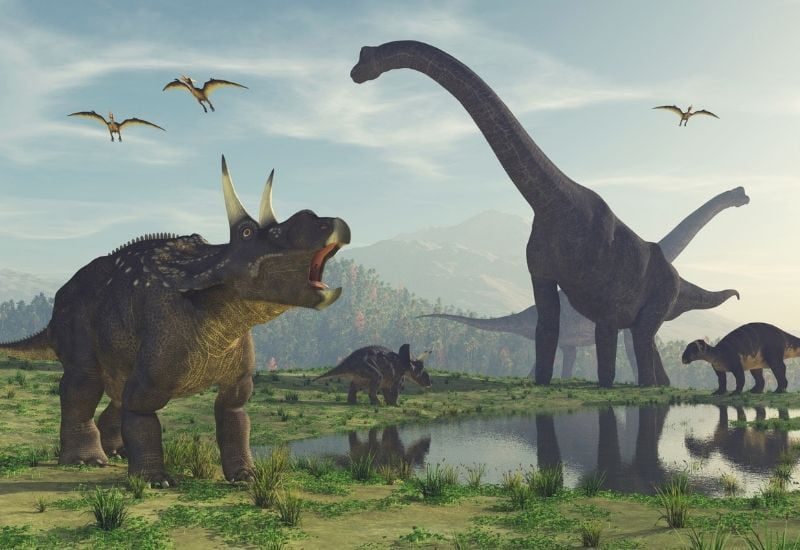The Cretaceous period was a time in Earth’s history marked by significant change. The continents were different, the climate was different, and the animals that roamed the Earth were certainly different. In this article, we’ll tell you exactly how Earth was different during the cretaceous period. Keep reading to learn more!

The Animals
Animals during the Cretaceous period were very different from the ones you’ll find today. For starters, enormous dinosaurs roamed the Earth alongside mammals and other reptiles. Life in the sea was also gigantic. Even more interesting is that early forms of many mammals we know today—such as marsupials—began evolving in this era.
The Climate
The climate in this period was much warmer than it is today. There were no glaciers, and even the polar regions were ice free most of the time. The Earth’s average temperature was quite a bit warmer and more humid than what we now experience. This was partially due to the higher volcanic activity occurring during this time.
The Plants
As you think about how Earth was different during the Cretaceous period, you may also wonder about the plants of the time. Did dense rainforests really cover the Earth, as the movies show? During the Cretaceous period, many flowering plants finally arose: cycads, conifers, and ginkgoes were among the most common. Furthermore, while the dinosaurs died out by the end of this period, the same isn’t true for all plant life; many species some survived the mass extinction event.
The Continents
During the Cretaceous period, the continents had not yet separated into their modern forms. Instead, they were connected into a single supercontinent called Pangaea. Through the course of millions of years, continental drift would cause Pangaea to break into the seven present-day continents.
There you have it: a look back on how Earth was different during the Cretaceous period. The animals, climate, sea levels, and landscape were all very different than what we see today. It was a fascinating time in Earth’s history!
